There’s a sweet and fruity smell in the warehouse, salsa music playing on a large stereo. The workers take bananas from a rattling conveyor belt with moves they’ve practiced thousands of times. They tear open the peel, remove the fruit and place it back on the upper belt. On and on it goes, at a rhythm in which the roughly 35 women process more than three dozen fruits a minute. All of it by hand, of course. If they were peeled by machine, the natural latex in the peels, which can function as an allergen, would end up in the fruit pulp and make it darker.
The large, light-flooded room is one of the centerpieces of the Ecuadorian facility, where 375 men and women work around the clock six days a week to process the valuable and vitamin-rich fruit. Here, in the Pasaje community in the southwest of the country, flakes, pieces and powders are made from bananas as well as mangoes, pineapples and pumpkins. The products are found around the globe in the highest quality in baby food, cereals, cakes, baked goods, breads, ice cream, smoothies or sports nutrition. Symrise purchased the global market leader in banana flakes in order to integrate this important raw material and its processing into its own value chain.
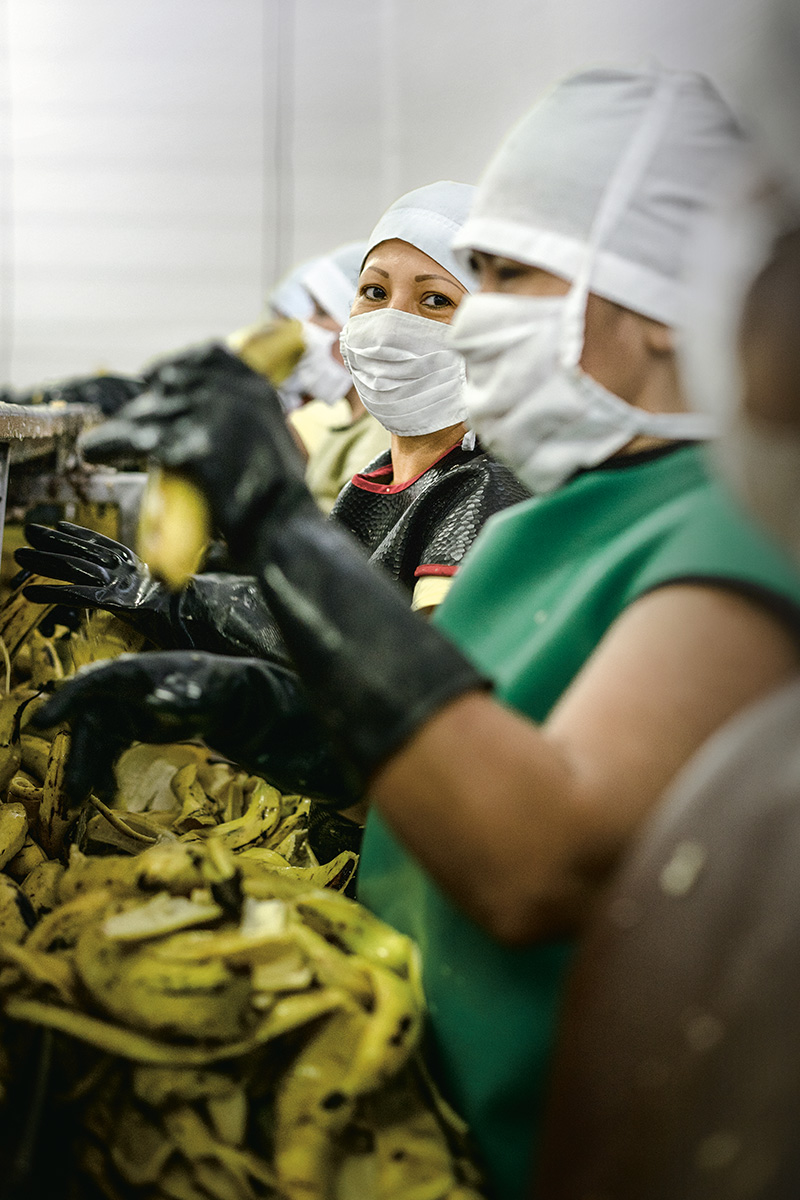
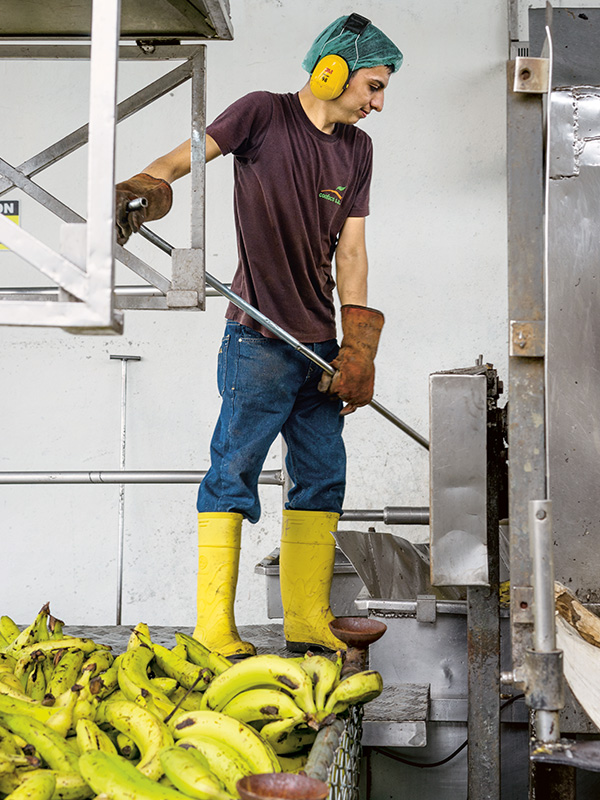
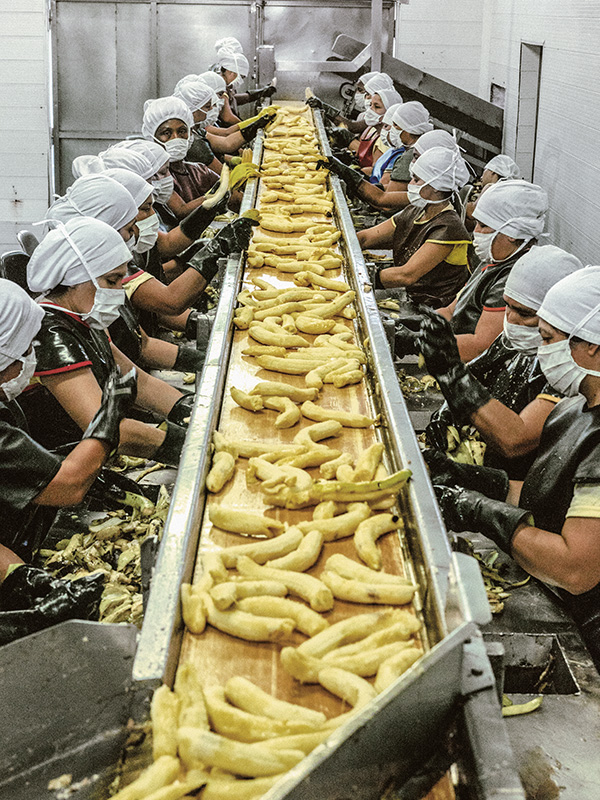
Working by hand for maximum quality
Each banana processed at the factory in Ecuador passes through the hands of the employees, who ensure top quality by peeling the fruit manually. They process three dozen sweet bananas per minute, which are then used to produce flakes, pieces and powder.
Bananas as far as the eye can see
There are around 4,500 banana plantations in El Oro. The Symrise factory is located at the heart of the region, so the bananas never have far to travel. The farmers look after and harvest their plants throughout the year, ensuring the supply of raw materials at all times.
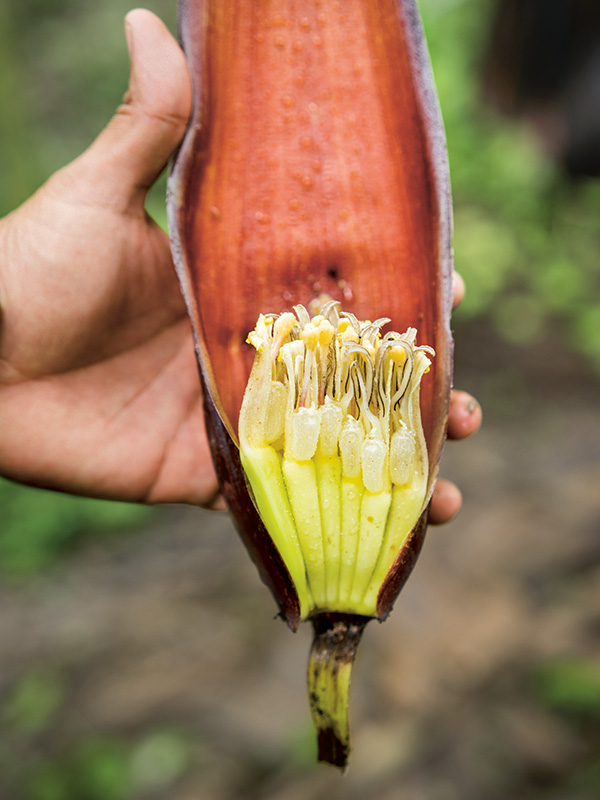
25 %
of the bananas processed by Symrise in Ecuador are organic, the rest come from conventional agriculture.
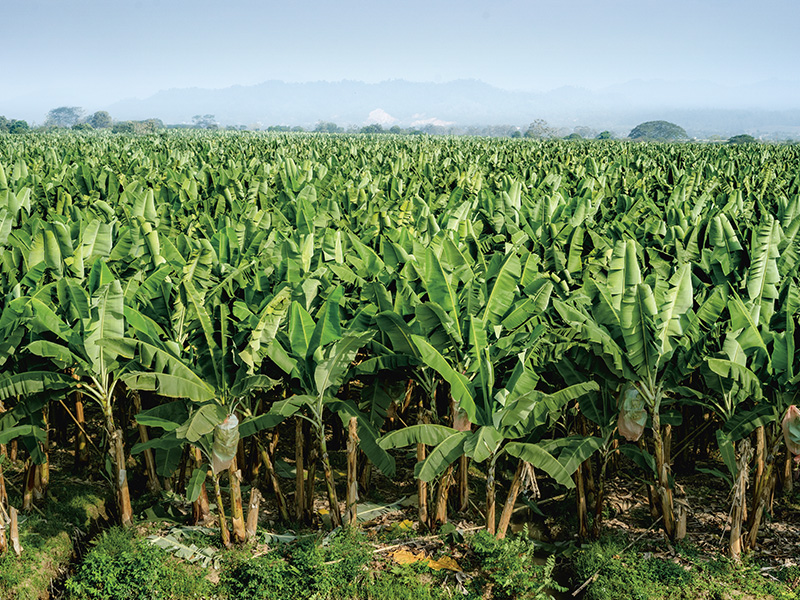
Growing trend toward organic banana
Every single banana that the company, founded in 1961, processes comes from one of the plantations within a 60-kilometer radius of its location. About 25 % are organic – with that number quickly growing. The rest are grown under conventional agricultural practices. One of the organic farmers is Gary Mendieta, who runs one of his three comparably small farms in the mountains. Up to 1,500 plants grow on each of the eight hectares. He and his team of five are always busy. They cut off the plants’ large excess leaves, keep the ground cleared, protect the seed heads of the three- or four-meter-high plants with plastic bags that let in light and air but keep out insects and birds. Each plant location has two to three harvests a year. “We cut off the plant that bore fruit. Its daughter is growing next to it, and right here the granddaughter, which forms the next generation,” Mendieta explains.
A worker carefully cuts down the plant when the fruit is still green. A second catches the shoot, which can weigh up to 50 kilograms, on a piece of hard foam and carries it on their shoulder to the collection point. Here the fruits are washed and sorted. With a trained eye, a worker sorts out the bananas that don’t have the desired curve, size or that have spots. That applies to about 10 %. “Exporters to the fresh market want perfectly formed fruit,” said Hector Bonnard. “We only take those bananas for our site in Pasaje that aren’t suited for the fresh fruit market.” The agronomist has been working for Symrise for two years. He and his colleagues visit the plantations every two weeks, advise the farmers and make sure that everything – from planting to fertilizing and weed and pest control all the way through to the harvesting and sorting of fruit – is done according to the company’s standards. In addition to supplying enough nutrients, irrigation also plays an important role. “The banana is a lady. She doesn’t like having wet feet,” Bonnard explains with a smile. That’s why water supply and drainage systems have to work perfectly.
The agricultural experts at Symrise have a lot of experience in the industry. “And we have a very good relationship based on trust with the farmers,” says Bonnard. “At the same time, we set high standards and keep documentation so that we can trace the raw materials back to the plantation at any time.”
The banana is a lady. She doesn’t like having wet feet.Hector Bonnard, Agronomist at Diana Food
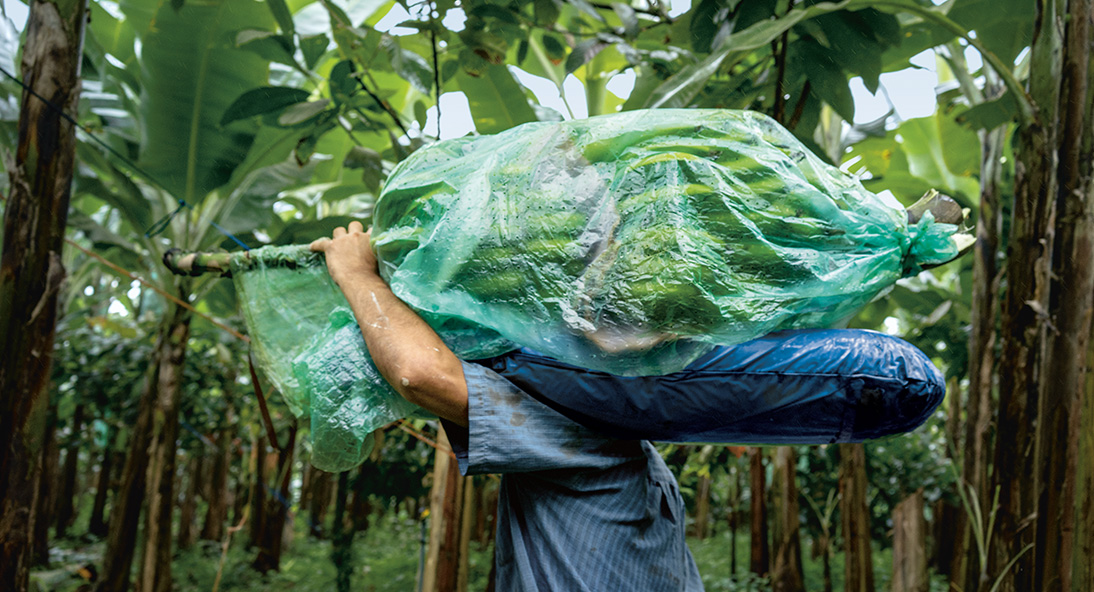
Quality checks at every step
Dozens of trucks loaded with green bananas arrive at Pasaje every day. After weighing, a visual inspection takes place. “We are constantly monitoring the quality,” says Francisco Larrea, who has led the company for 18 years. “After unloading, the bananas are put into airtight storage and complete their maturation to reach their perfect sweet taste.” After peeling – the peels are composted – the fruits go through a variety of processes. A large machine mashes them into a fine paste, which is then filtered once more and heated. Through the process of vacuum evaporation, a highly concentrated banana essence is formed.
In yet another process, the larger portion of this mash is further dehydrated and treated at high heat in six drum dryers. This pulp only has a small amount of residual moisture and is pressed through two rolls. The result looks like edible paper, is dry and warm and has an intense taste of fresh bananas. The final step: Meter-long knives cut the paper down to the desired size for flakes or powder. “The process has to be right at every step,” says Larrea, under whose leadership the number of employees has almost quadrupled. The company wants to invest in new workspaces for the drum dryers and in laboratory equipment in order to maintain the excellence of this pure natural product. The end products made in this factory are used in tons of applications all over the world. “The majority of our flakes are used for baby food,” Larrea explains. “We can guarantee top quality and excellent food safety because we perform strict testing for bacteria and exercise tight controls when
it comes to cleanliness and foreign particles.”
A focus on employees
“Sustainability in production is equally important to us,” says Larrea. “We were the first company with an environmental license in the El Oro province.” The site is a member of the SEDEX (Supplier Ethical Data Exchange) online platform for ethically and socially sustainable manufacturers. Part of this is that Diana Food places a particular emphasis on its employee’s well-being at work. For example, they receive free meals in the cafeteria, are provided with work clothing and transport services to get to work. The company also provides health care. Men and women receive regular check-ups and medication, are vaccinated against yellow fever and can go to a clinic when there’s a serious problem. “This offer is provided for the entire family”, says Shirley Sanchez. “Family is one of the most important pillars of life for us here in Ecuador. That is why we strategically include families so that our employees feel comfortable and take care of themselves,” the company doctor explains.
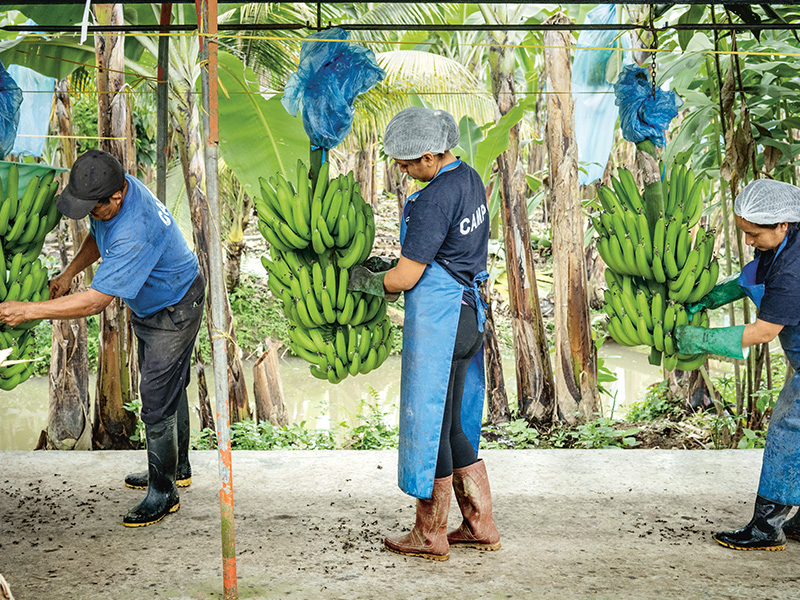
“The solidarity among employees is high. We support that.”
Chanena Matamoros
HR Manager
The company also provides a lot of consideration for employees who are limited in what they can do. Older employees are given easier tasks. Shirley Sanchez points to a pregnant woman. “For mothers, who are often very young, we adjust their working hours so that they are home enough – the women are often the sole providers in the family.”
“We are a very committed team,” the HR Manager Chanena Matamoros confirms. “At the same time, solidarity among employees is also high, which we support.” For example, employees often collect money for their colleagues if someone is sick. Diana Food also supports this sense of community with a microloan system. Every worker can pay in and save money – and can also take out three times their savings as a loan.
The company is also involved in the communities around the plant, donates candy for children’s events and sponsors bands for a music festival or trophies for soccer tournaments. A large sum went into the renovation of the municipal park. “We try to build up a good relationship with the communities,” says Matamoros. “That also makes us attractive as an employer,” Larrea adds. “That is extremely important for us, so we can find educated, motivated and reliable employees.”
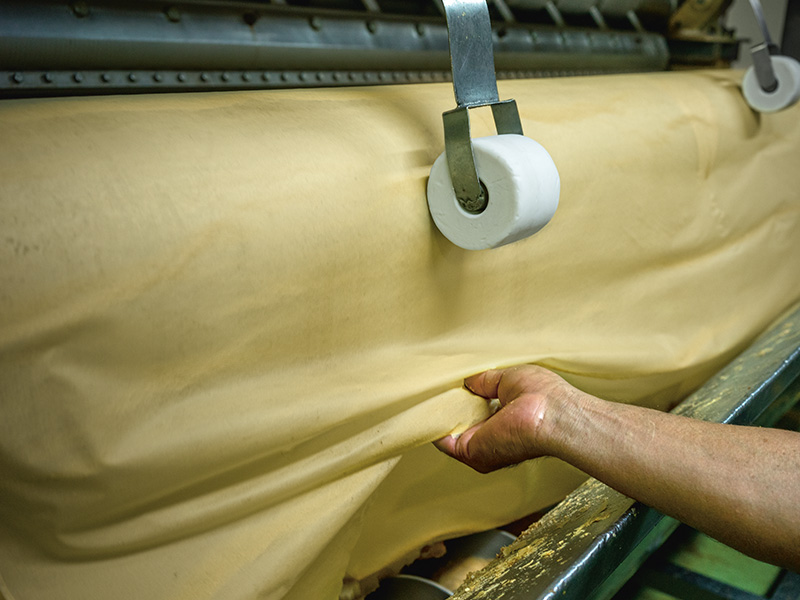
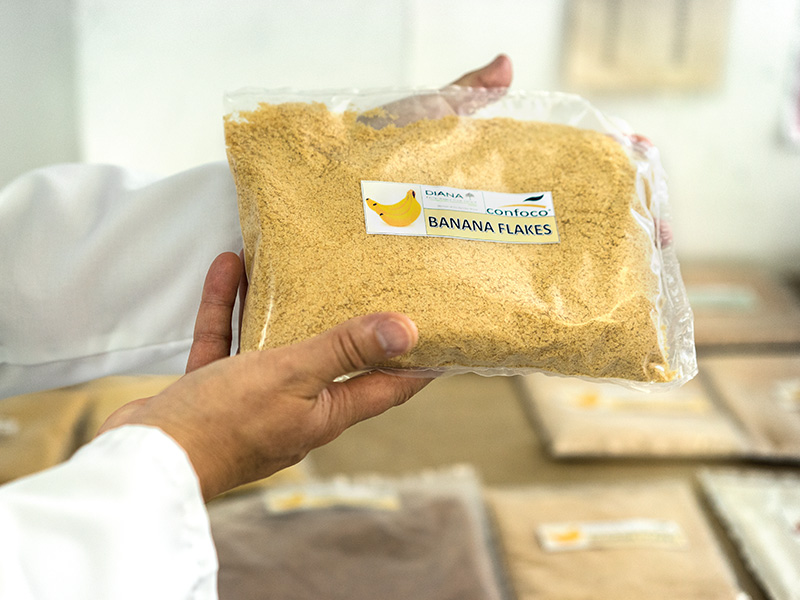
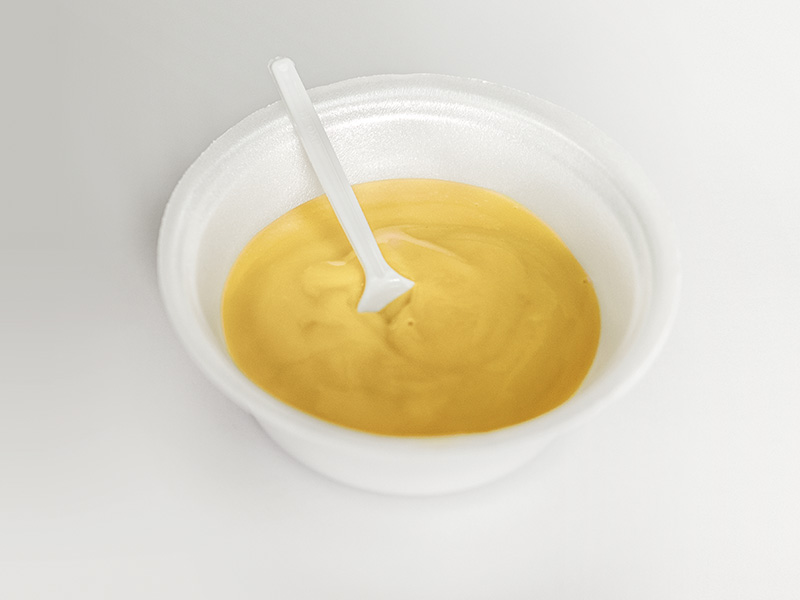
Once the bananas have been processed into a fine paste free of germs and foreign bodies, they’re dehydrated and treated at high heat in six drum dryers. The dry product, which has an intensive banana flavor, is then processed into flakes.
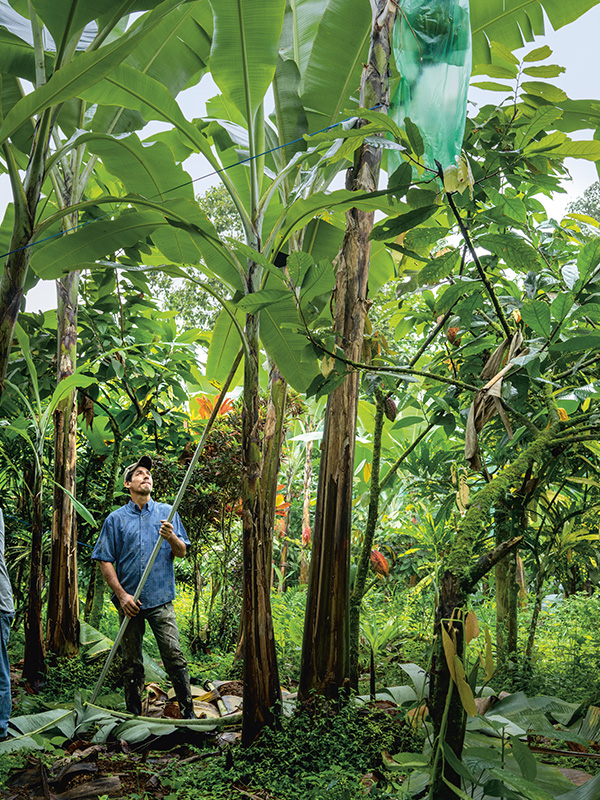
More than an economic factor
Ecuador offers the ideal conditions for growing bananas. The soil quality is excellent; it has a tropical climate but is not affected by hurricanes, and the rainy season is relatively short. One plus of these environmental conditions is that less pesticides and fertilizers have to be used for farming. This naturally also encourages the spread of organic farming practices. This has helped make the country the fourth-largest banana producer and largest banana exporter in the world. The industry belongs to the biggest employers in this country, which lies in the northwest of South America between Colombia and Peru. Almost one million people work on roughly 220,000 hectares of plantations, especially in the three western provinces of Los Rios, Guayas and El Oro – the latter of which has the most plantations with a staggering 4,500. This is also where Diana Food has the Pasaje factory. The country exports about 90 % of the bananas it produces, especially to Europe and the USA.
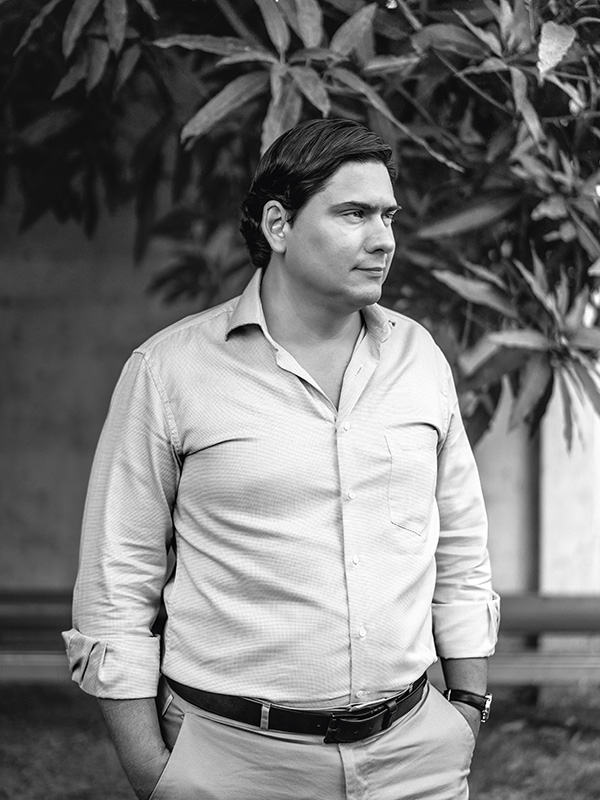
Harry Veintimilla is the President of Ecosfera, a regional environmental consulting firm.
“Since 2009, as a consulting company certified by the country of Ecuador, we have been working with Diana Food to make the entire production more sustainable. We started with a major study to measure noise emissions, for example, as well as the quality of the wastewater and air. Based on that, we advise the facility on how the company can better achieve its environmental goals. A company is awarded our environmental seal if 50 % of our standards are adhered to – Diana Food is at 90 %, making it one of the top 10 companies in the region.”
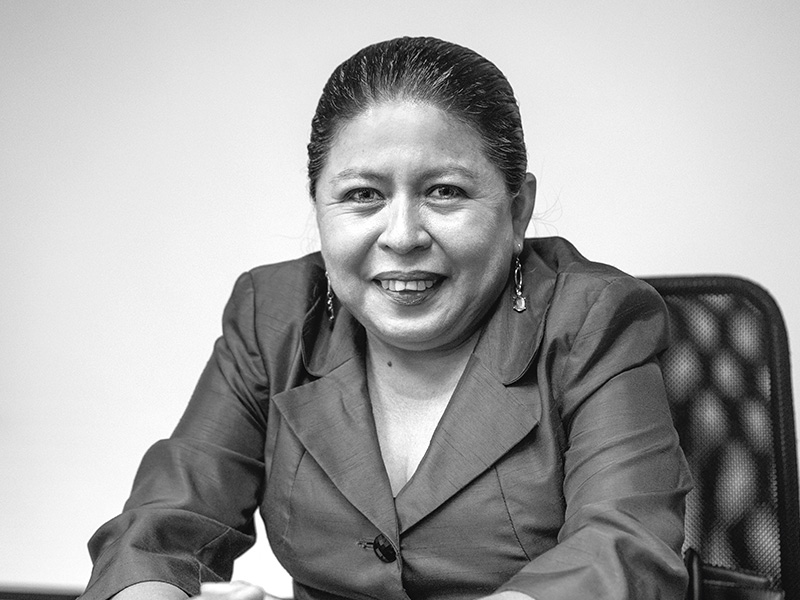
Talia Navarrete is a member of the local council in Pasaje.
“Diana Food makes an important contribution to our community at numerous levels. The company put the town and the region on the map for this industry – bananas are the most important source of income and a company like this helps us be strong economically. It also ensures that reliable work is available and is a stable partner, especially in times when our economy is being rocked by crises. And finally, the company is involved in our schools and the infrastructure, which we, as a community, are very happy about.”
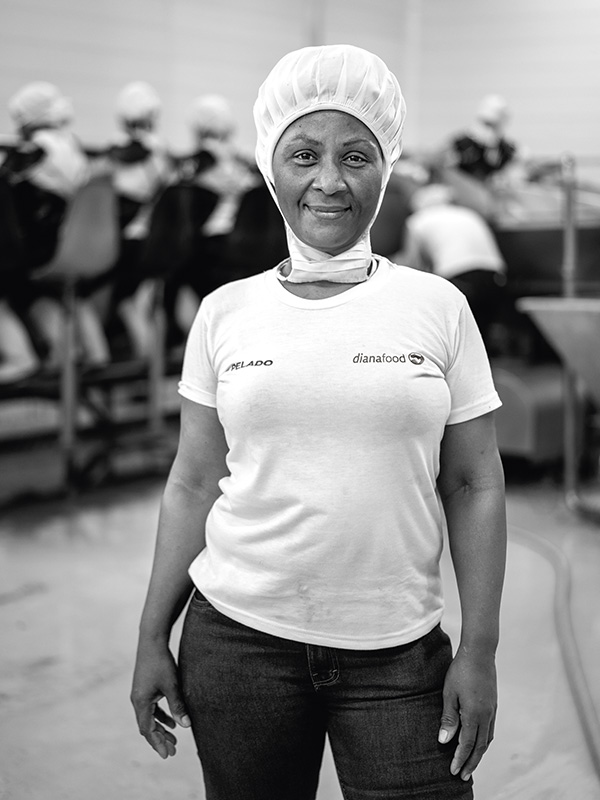
Sandra Estupiñan works at Diana Food as a banana peeler.
“I’ve had the same job here for 14 years. I work four days a week for twelve hours each day. And even though it’s tough and sometimes a bit monotonous, I am really happy. Our group sticks together; some of us take turns being in charge. I’ve done that a number of times. And above all, working here is a secure job. We get paid on time and there are a lot of positive things, like the free meals in the cafeteria or the health care.”
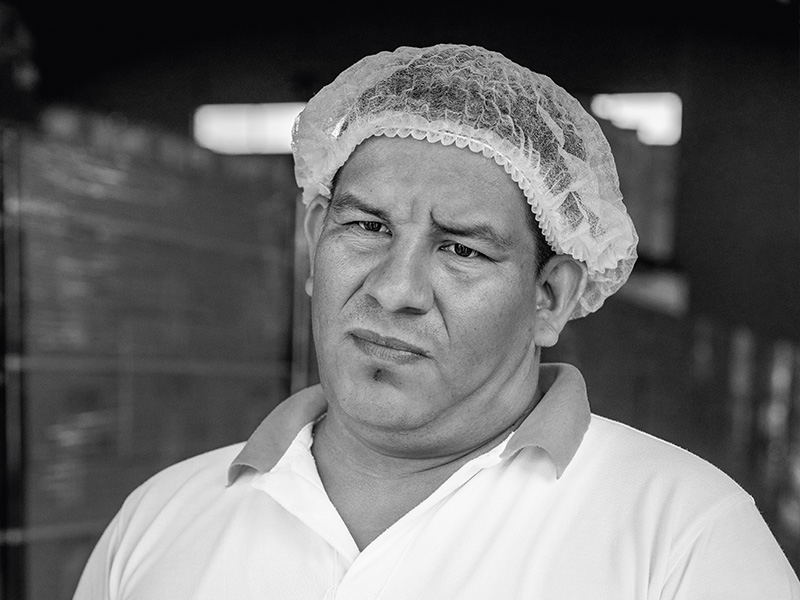
José Santillán is the Head of Environmental and Occupational Safety at Diana Food.
“Achieving the highest occupational safety possible in our factory is one of our main goals. I spend the whole day, from Monday to Friday, going through the factory to see where there could be risks. That allows us to recognize and repair weaknesses immediately. We also train our employees, provide safety clothing for them and make sure that it is worn. By doing so, we’ve ensured that there hasn’t been a single major accident in the past years.”
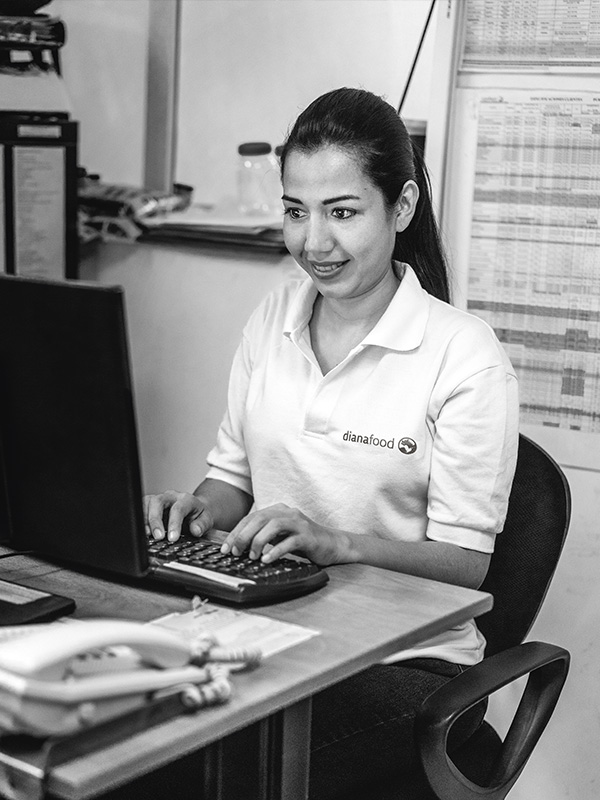
Ivanova Sánchez is a food engineer and works as a Quality Assistant at Diana Food. She won the talent show that the company hosts for its employees.
“Our production has many certificates, for example, BRC. It attests to the fact that we have a working management system in food safety. My job, among other things, is to make sure we adhere to the standards with our products here in the laboratory. To do so, we perform checks regularly.”
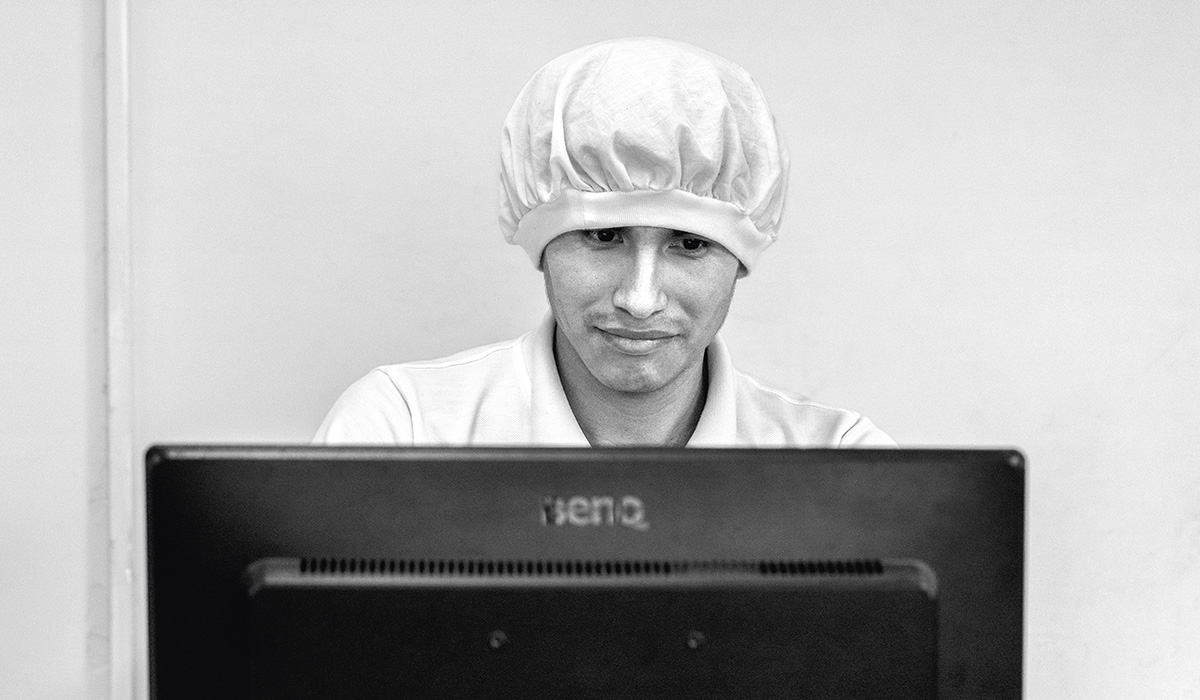
Neira Lapo César Stalin enters lists of raw materials into the computer. He is one of about 4 % of the employees at Pasaje site who have a disability.
“I have been deaf since birth, but I can read lips and communicate with my colleagues. We have a great team in which everyone looks out for one another. I enjoy my job because I like working at a computer. This was a great opportunity for me, because it was very difficult for me, as someone with deafness, to find a job.”
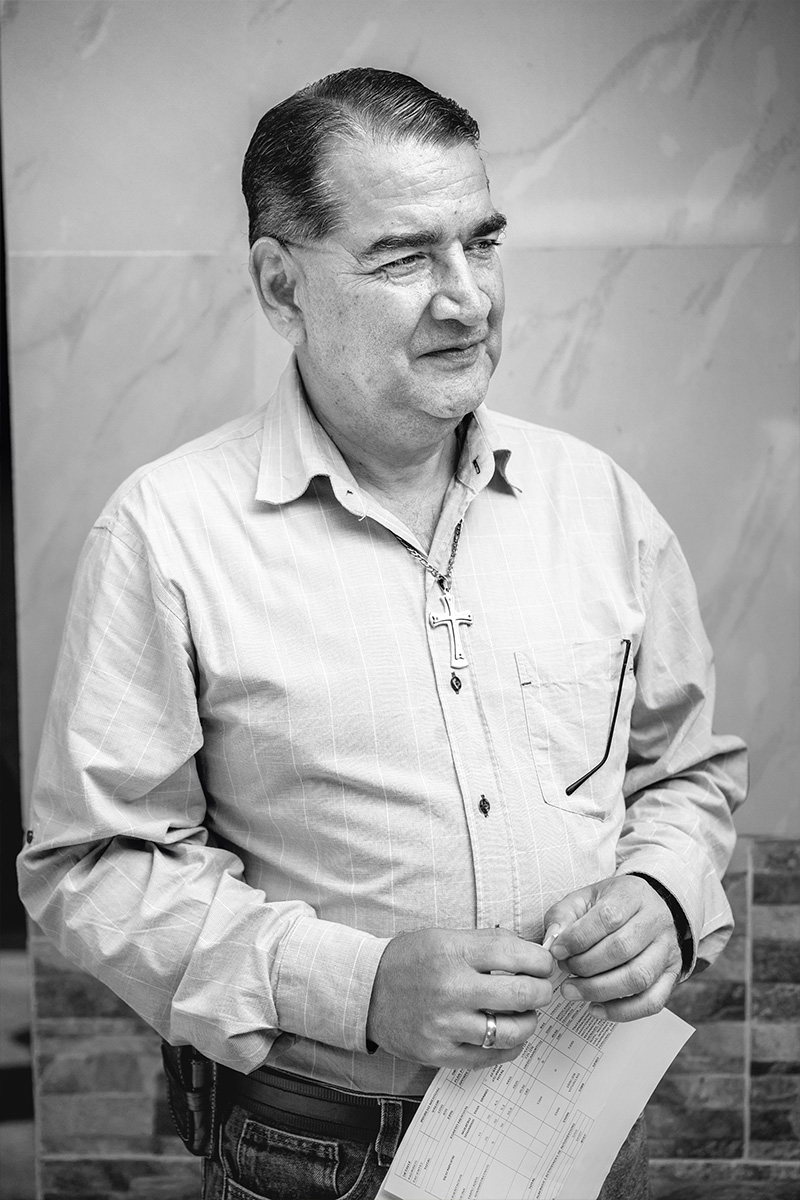
Giovanni Navas runs the “Divina Misericordia Albergue,” a home for people living with disability.
“There is no public system in Ecuador that supports people with mental illness who are stranded. As a result, our shelter relies on donations. Symrise let its employees decide which project its donations should benefit. We received € 6,000. We were able to buy a number of hospital beds and a new washing machine, which we would not have been able to afford otherwise.”
